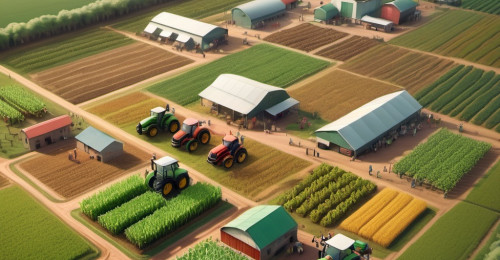Course Description
Importance of Cooperative Farming focuses on the transformative power of cooperative farming in modern agriculture. In this course, Dr. Edna Akagbusum will guide participants through the principles and benefits of farming in clusters and groups, demonstrating how this collaborative approach can lead to enhanced productivity and sustainability.
Cooperative farming allows farmers to pool resources, share knowledge, and collaborate on various aspects of agricultural production. By working together, farmers can achieve economies of scale, making it easier to access markets, secure financing, and obtain necessary support services. This course will discuss how cooperative farming models can help reduce individual risks, increase bargaining power, and enhance overall farm profitability.
Participants will explore successful case studies and best practices from around the world, gaining insights into how cooperative farming can be implemented effectively in different contexts. By the end of this course, you will have a solid understanding of the advantages of cooperative farming and be equipped with the knowledge to consider this approach in your agricultural endeavors.
What You’ll Learn?
Objectives of the Course
- To explain the concept and principles of cooperative farming.
- To discuss the benefits of farming in clusters and groups.
- To explore how cooperative farming facilitates access to markets, finance, and support services.
- To provide insights into successful cooperative farming models and best practices.
Lessons: 4






